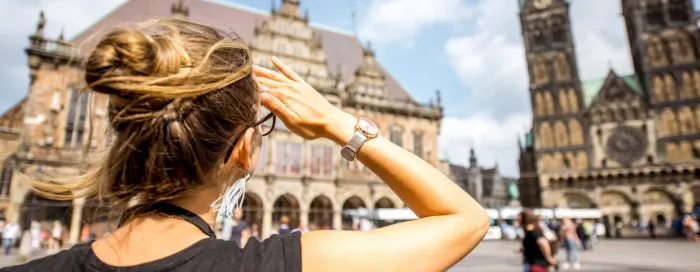Adopted unanimously by the members of the European Committee of the Regions (CoR), the draft opinion of Babette Winter, State Secretary for Europe and Culture in the Thuringia State Chancellery (PES/Germany) responds to a request by the Bulgarian Presidency of the Council, to address "Cultural heritage as a strategic resource for more cohesive and sustainable regions in the EU".
"Cultural heritage strengthens identity in a region as well as in Europe as a whole, contributes to social cohesion and quality of life and offers development opportunities for regions affected by demographic change and depopulation", underlined the rapporteur, calling on EU regions to take this on board in their smart specialisation strategies and insisting that culture and cultural heritage be better incorporated in the priorities of the EU's future budget.
To this effect, the rapporteur asks for at least 1% of the EU's budget for 2011-2017, to be allocated to culture, with investments in cultural heritage infrastructure and a focus on socio-cultural cohesion. The rapporteur regrets that the Europe 2020 strategy took no account of culture and calls for support for cultural heritage resources for regional development to be made an important element of cohesion policy after 2020.
She also urges the European Commission to rescind the capping of the ERDF investment budget for cultural infrastructure at EUR 5 million in the current programming period of the Structural Funds and the Cohesion Fund and to base the programmes on substantive criteria and the goals to be achieved, especially European added value.
The adoption of the opinion was preceded by a debate on "Strengthening European identity through culture", involving Tibor Navracsics, Commissioner for Education, Culture, Youth and Sport, Petra Kammerevert (DE/S&D), Chair of the CULT Committee of the European Parliament, and the newly elected President of the European Economic and Social Committee Luca Jahier.
Responding on behalf of the PES Group, Babette Winter reminded that while a recent Eurobarometer survey shows that EU citizens consider culture to be the strongest glue binding the EU together, they do not consider that there is one common European culture but rather, interconnected cultural roots, illustrating the EU's motto "united in diversity".
This was shared also by Petra Kammerevert MEP, who underlined that there cannot be a harmonized understanding of culture, but insisted that shared European values should translate into the respect of the Charter of Fundamental Rights, which is not given for all EU Member States.
